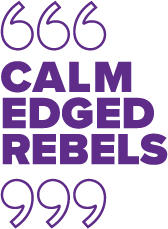In episode four of our podcast, we look at all forms of habits, why we should be aware of them, how they shape the way we live and work, and how substituting the bad with the good can help us grow.
The recording certainly felt like a therapy session! We talked about eating cheese, ‘doom-scrolling’, being part of procrastination royalty, wedding weight-loss and bedtime rituals. But replacing bad habits with good ones takes discipline, focus and having a plan.
With the help of the book Atomic Habits by James Clear, we discovered why it’s good to start small, why it’s not always about sacrificing one thing for another, and how adding or removing friction helps create new habits.
In our work with leadership teams and executive coaching, we always talk about setting goals and achieving objectives to help them – or their business/organisation – develop and grow. This is why it’s so important to be aware of the systems – or habits – in place along the way, and whether they work well or not.
As Albert Einstein is alleged to have said: “Insanity is doing the same thing over and over again and expecting a different result”. The same can be said of unhealthy habits, which are easy to slide into and incredibly difficult to break.
Here’s a summary of takeaways to help establish new, good habits.
Start small
Don’t attempt big lifestyle changes. Instead aim to be one percent better today than you were yesterday. It’s the small changes that you make to your daily patterns that make a big difference.
For example: don’t take your phone to bed. Placing smart devices well out of reach can remove the persistent urge to scroll through social media or respond to messages. This leaves you to get ready to relax, maybe by reading, before (literally) switching off for a good night’s sleep.
A small habit that’s initially hard to break – it’s only when you see the benefit of your new habit that you will embed it.
Wellbeing
Creating new habits – or putting boundaries in place – will improve your wellbeing. As the Atomic Habits says: “Bad habits are formed by boredom and stress”. Comfort eating and drinking or losing ourselves in a favourite film or familiar TV series are perfect examples of what we do when we’re anxious or have much on our minds.
Also, a lack of helpful, healthy habits can lead to feeling overwhelmed.
It takes discipline
According to Mel Robbins: “No one’s coming…” No one’s coming to write the business plan, to lose the weight, to make you go to the gym, to do the things you need to do, or don’t want to do in order to have what you want and be who you want to be. It’s down to you.
Just stopping a bad habit doesn’t work. The key to success is replacing a bad habit with a good one.
Friction
Remove it, add it, or create it. For example, you want to start a daily early morning walk routine – et your walking clothes ready the night before. Then, on those mornings when motivation wanes, there’s less friction and you’re more inclined to get up and go.
If having your phone close is too tempting, then place it in another room. When the desire to ‘doom-scroll’ social media hits, the added friction in getting out of bed, off the sofa or away from a desk can help break the cycle.
Be kind to yourself
There are healthy habits and unhealthy habits: sometimes we need to allow ourselves some of both. It’s a question of finding a balance that works best for you. Sometimes we need to cut ourselves some slack from being totally focused and productive.
Remember procrastination isn’t necessarily a bad thing. It’s OK to take time to reflect, plan or stop to take a breath as long as you don’t allow procrastination to stop you doing what you want or need to do. .
Putting too much pressure on yourself to make big changes or lots of changes is when it can go wrong. It’s not about being a new person.
Every day we make a choice. Just because we make the wrong choice doesn’t mean we’re going to fail.
Plan
Consider creating a daily routine, setting a variety of alarms or timers to help focus the mind on completing the things that need to get done, or even for taking those much-needed breaks.
Listen to our podcast from season one for more great ideas on staying focused and being productive.
Reward
Once you’ve identified the list of what needs to be done, consider a prize on achieving it. And if you don’t meet your goals, then be prepared to muster the will power not to ‘claim’ your reward. A reward can be anything from a cup of tea to something you’ve wanted to purchase for a while. It’s important to recognise and celebrate successes along the way.
Buddy up
Accountability is key when dropping or setting a new habit, whether it’s being accountable to yourself or to someone else. Team up with someone you trust. Take them into your confidence and ask them to regularly hold you to account.
The three of us wholeheartedly believe in this, and constantly practice this approach with each other.
We are passionate about helping people be their best selves. To find out more about the collective or individual coaching and personal development work that we do, drop us a line at hello@calmedgedrebels.com or read about our Coaching Retreat in October.






